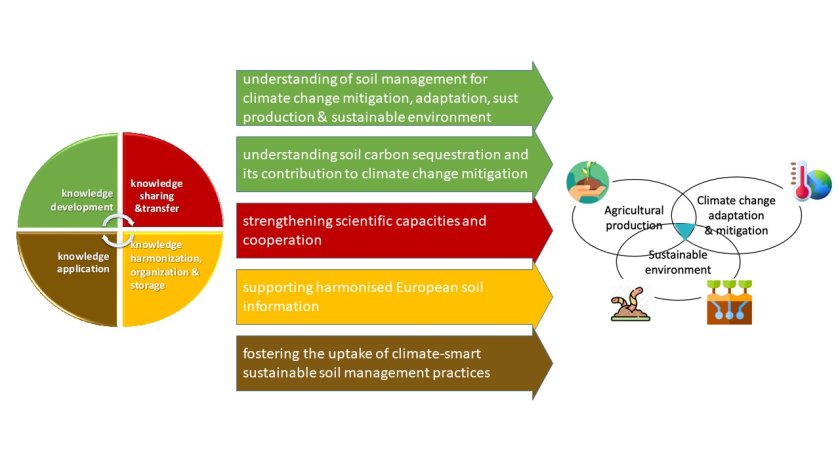
Project
EJP SOIL: European Joint Programme on Soil
The main objective of the European Joint Program on Soil (EJP SOIL) is to develop and share knowledge to enhance the contribution of agricultural soils to key societal challenges. These challenges are climate change adaptation and mitigation, sustainable agricultural production, ecosystem services provision and prevention and restoration of land and soil degradation.
EJP SOIL is established to build a sustainable European integrated research community on agricultural soils. The EJP Soil consortium unites a unique group of 26 leading European research institutes and universities in 21 EU-countries, Norway, Turkey and Switzerland. The consortium has secured over 80M in funding and 10M for external calls over 5 years.
In EJP SOIL, a Roadmap on climate-smart sustainable agricultural soil management is developed and deployed. The EJP SOIL roadmap is based on a knowledge framework with four interacting components:
- Knowledge development, set out in project calls with internal and external partners.
- Knowledge sharing & transfer, framed in capacity building for young scientists, enhancing public awareness and fostering societal understanding and appreciation of agricultural soil management and its contribution to society.
- Knowledge harmonisation, and harmonised storage, organisation support and reporting practices of soil information.
- Knowledge application, dealing with ways to overcome barriers for adoption of novel practices in a European context, co-developing adequate tools and providing evidence-based recommendations for EU policies.
EJP SOIL activities are carried out in interaction with stakeholders, Member states and DG AGRI. The long-term goal is to promote farmers as stewards of land and soil resources and to support policy development and deployment, in particular the CAP and Climate policies. EJP SOIL addresses six expected impacts with targeted activities in response to societal, scientific, policy and operational challenges (see figure).

Actual information on EJP SOIL and results can be found on the website of EJP SOIL. Specific information for the Netherlands can be found at these webpages (in Dutch).